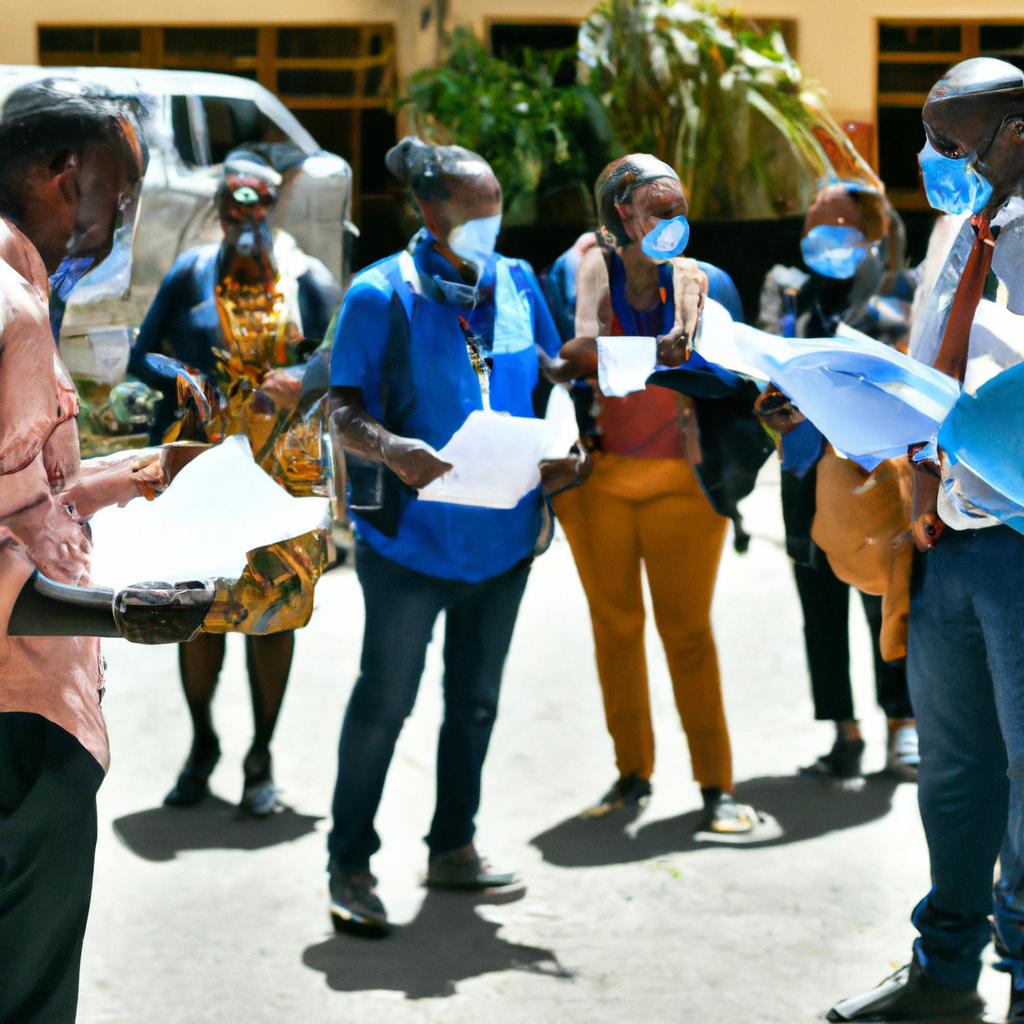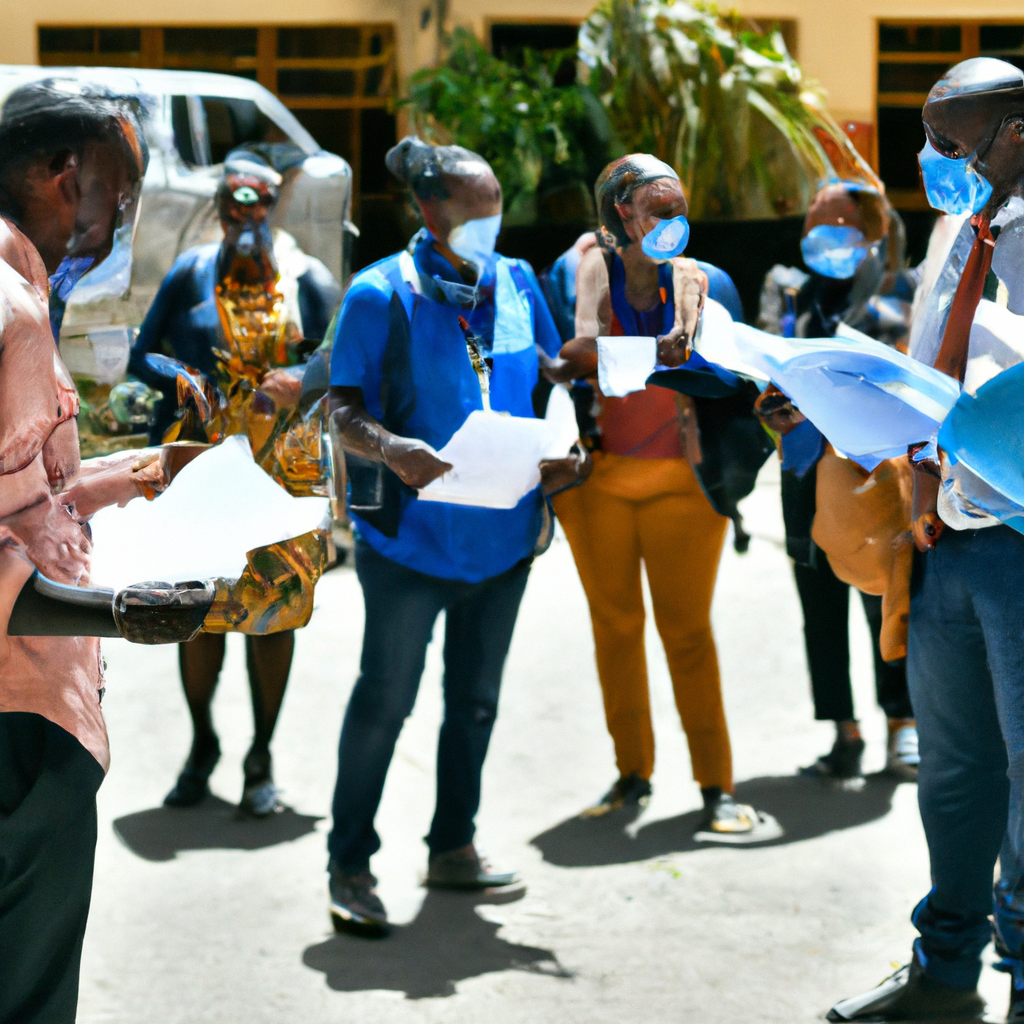How Did Kenya Address Issues Of Gender Equality And Women’s Empowerment?
In the quest for gender equality and women’s empowerment, Kenya has made significant strides in addressing these crucial issues. Recognizing the importance of equal rights and opportunities for all, the country has implemented a range of initiatives and policies that aim to create a more inclusive and equitable society. From legislative reforms to targeted programs, Kenya has taken proactive measures to tackle gender disparities head-on and empower women to reach their full potential. By understanding the efforts made by Kenya, we can gain valuable insights into the strategies employed to address gender inequality and promote women’s empowerment.

Government Policies and Legislation
Kenya has made significant strides in addressing issues of gender equality and women’s empowerment through the implementation of various government policies and legislation. These policies and laws have been critical in promoting and safeguarding women’s rights in the country.
Constitutional Provisions
The Kenyan Constitution, adopted in 2010, contains several provisions that protect and promote gender equality. Article 27 of the Constitution prohibits discrimination on the basis of gender and guarantees equal treatment for men and women. It also recognizes the need for affirmative action measures to address historical disadvantages faced by marginalized groups, including women.
Anti-Discrimination Laws
Kenya has enacted various anti-discrimination laws that specifically target gender-based discrimination. The Employment Act prohibits discrimination against women in the workplace, ensuring equal opportunities for employment and promotion. The Sexual Offenses Act criminalizes various forms of gender-based violence, including rape, sexual harassment, and female genital mutilation, providing legal recourse for victims.
Matrimonial Property Act
The Matrimonial Property Act, passed in 2013, aims to address gender inequalities in the distribution of matrimonial property upon divorce or separation. Prior to this law, women often faced challenges in securing their fair share of property due to cultural norms and discriminatory practices. This act ensures that both spouses have equal rights to matrimonial property and promotes economic independence for women.
Affirmative Action Policies
Kenya has implemented affirmative action policies to enhance the representation of women in decision-making positions. The Constitution requires that no more than two-thirds of any elected or appointed body should be of the same gender. To comply with this provision, the National Gender and Equality Commission has implemented strategies to increase women’s political participation and encourage their appointment to leadership positions.
Women’s Access to Education
Recognizing the importance of education in empowering women and promoting their rights, Kenya has implemented several measures to improve women’s access to education.
Elimination of School Fees
In 2003, Kenya abolished primary school fees to ensure that all children, including girls, have equal access to education. This policy has significantly increased girls’ enrollment and retention rates, breaking down financial barriers that previously limited their access to education.
Promotion of Girl Child Education
The Kenyan government, in collaboration with various stakeholders, has implemented programs to specifically promote girl child education. These initiatives aim to tackle gender disparities by addressing cultural and social barriers that hinder girls’ access to education. They provide financial support, scholarships, mentorship, and awareness campaigns to encourage girls to stay in school and complete their education.
National Gender Policy in Education
The National Gender Policy in Education provides a framework for addressing gender inequalities within the education system. It promotes gender-responsive teaching methods, curriculum development, and teacher training, ensuring that education is inclusive and free from gender bias. The policy also encourages the adoption of measures to prevent and address gender-based violence in schools.
Women and Economic Empowerment
Kenya recognizes the importance of women’s economic empowerment in achieving gender equality and has implemented various policies and programs to support women in this regard.
Access to Credit and Financial Resources
The government has introduced programs to increase women’s access to credit and financial resources. This includes setting up special funds and financial institutions that provide loans and grants specifically targeted at women entrepreneurs. These initiatives aim to enhance women’s economic opportunities, promote their businesses, and enable them to become financially independent.
Promotion of Women Entrepreneurship
Kenya has developed initiatives to promote and support women entrepreneurship. The government, along with development partners, offers training and capacity-building programs to empower women with the necessary skills and knowledge to start and run successful businesses. These programs also provide mentorship and networking opportunities, enabling women to access markets and grow their enterprises.
Support for Women in Agriculture
Recognizing the significant role women play in the agricultural sector, the government has implemented policies and programs to support women farmers. This includes providing access to agricultural inputs, training, and market linkages. By ensuring that women have equal access to resources and opportunities in agriculture, Kenya is fostering economic empowerment and reducing gender disparities in the sector.

Health and Reproductive Rights
Kenya has taken steps to promote women’s health and reproductive rights, recognizing that access to quality healthcare is essential for women’s well-being and empowerment.
Gender-Sensitive Health Policies
The government has developed gender-sensitive health policies that prioritize women’s health needs and rights. These policies emphasize the provision of comprehensive healthcare services, including maternal and reproductive health, family planning, and prevention and management of gender-based violence. They also aim to address social and cultural barriers that hinder women’s access to healthcare.
Family Planning and Maternal Healthcare Services
Kenya has implemented programs to ensure access to family planning and maternal healthcare services. These initiatives aim to reduce maternal mortality rates by providing safe and affordable reproductive healthcare options. The government has partnered with NGOs and international organizations to increase the availability of family planning methods, improve the quality of maternal healthcare, and promote antenatal and postnatal care.
Addressing Gender-Based Violence
Kenya is actively addressing gender-based violence through legislation, policies, and programs. The government has strengthened laws to criminalize gender-based violence and established specialized courts to handle such cases. It has also set up shelters and support services to provide assistance and protection to survivors of gender-based violence. These efforts aim to create a safe environment for women and ensure that they are protected from all forms of violence and abuse.
Women’s Political Participation
Kenya has taken measures to increase women’s political participation, recognizing that their representation in decision-making processes is essential for promoting gender equality.
Increasing Women Representation in Government
To address the underrepresentation of women in politics, Kenya has implemented measures to increase women’s representation in government. The Constitution requires political parties to ensure that at least one-third of their nominated candidates are of the underrepresented gender. This has led to a significant increase in the number of women holding political positions, both at the national and local levels.
Promotion of Women Leadership
The government has encouraged the promotion of women’s leadership in various sectors. It has created platforms and networks to mentor and empower women leaders, providing them with the necessary skills and knowledge to excel in their respective fields. These initiatives aim to challenge societal norms and stereotypes, advocating for equal opportunities for women to assume leadership roles.
Election and Civic Education for Women
To enhance women’s participation in electoral processes, Kenya has implemented election and civic education programs targeted specifically at women. These programs aim to equip women with knowledge about the electoral process, their rights, and the importance of their participation. By creating awareness and building their confidence, these initiatives encourage more women to engage in the political sphere.
Women’s Rights Organizations and Activism
The role of women’s rights organizations and activism is crucial in the pursuit of gender equality and women’s empowerment in Kenya.
Role of NGOs and Civil Society
Kenya is home to many women’s rights organizations and NGOs that play a vital role in advocating for gender equality. These organizations work tirelessly to raise awareness, provide support services, and strengthen the capacity of women and girls. They engage in policy advocacy, research, and community mobilization, ensuring that the voices of women are heard and their rights are protected.
Women’s Movements and Advocacy
Women’s movements in Kenya have been instrumental in leading advocacy efforts for gender equality. Through protests, campaigns, and collective action, these movements have successfully challenged discriminatory practices and policies. They have lobbied for legal and policy reforms, driving positive change in society and empowering women to assert their rights.
Legal Aid and Support Services
Various organizations provide legal aid and support services to women who have experienced gender-based violence or discrimination. These services include legal representation, counseling, and referrals to relevant support networks. By ensuring access to justice, these organizations contribute to the empowerment of women and the protection of their rights.
Challenges and Gaps in Gender Equality
While Kenya has made significant progress in promoting gender equality and women’s empowerment, various challenges and gaps still persist.
Cultural and Social Norms
Cultural and social norms continue to act as barriers to gender equality in Kenya. Deep-rooted patriarchal traditions, stereotypes, and harmful practices often limit women’s opportunities and reinforce gender inequalities. Addressing these norms requires changing mindsets, challenging societal expectations, and promoting inclusive values that value and respect the rights of women.
Gender-Based Violence and Discrimination
Gender-based violence remains a significant challenge in Kenya. Women and girls continue to experience various forms of violence, including domestic violence, sexual assault, and harmful traditional practices. Discrimination against women, particularly in accessing employment, education, and property rights, also persists. Efforts to address these issues require comprehensive approaches, including legal reforms, awareness campaigns, and the provision of support services.
Limited Access to Justice
Despite efforts to strengthen the justice system, many women still face barriers in accessing justice. Limited awareness of legal rights, resource constraints, and gender biases within the justice system contribute to women’s limited access to justice. To address this challenge, it is crucial to enhance legal literacy, provide affordable and accessible legal aid services, and ensure that justice institutions are gender-responsive.
Monitoring and Evaluation of Gender Equality Efforts
To track progress and ensure the effectiveness of gender equality efforts, monitoring and evaluation mechanisms play a crucial role.
National Gender Commission
The National Gender Commission is responsible for monitoring and evaluating the implementation of gender equality policies and programs. It conducts research, collects gender-disaggregated data, and makes recommendations to the government and other stakeholders. The commission plays a vital role in ensuring accountability and driving positive change in gender equality outcomes.
Gender-Sensitive Data Collection
Collecting gender-sensitive data is essential in assessing the impact of policies and programs on women’s empowerment. By disaggregating data based on gender, policymakers can identify gaps, target interventions, and measure progress. Kenya has made efforts to improve data collection systems to capture gender-specific indicators and inform evidence-based decision-making.
Evaluation of Policies and Programs
Regular evaluation of gender equality policies and programs is crucial to assess their effectiveness and identify areas for improvement. Evaluations provide insights into the impact and outcomes of interventions, enabling policymakers to make informed decisions and ensure that resources are allocated effectively. Through evaluations, Kenya can refine its strategies and approaches to better address gender disparities and enhance women’s empowerment.
International and Regional Partnerships
Kenya has actively engaged in international and regional partnerships to promote gender equality and women’s empowerment.
UN Women Kenya Partnership
Kenya has been a strong partner of UN Women, the United Nations entity dedicated to gender equality and the empowerment of women. UN Women has supported Kenya in implementing gender equality policies and programs, providing technical assistance, capacity building, and funding support. This partnership has been instrumental in advancing women’s rights and promoting gender equality across various sectors.
African Union’s Gender Agenda
Kenya is a member state of the African Union (AU) and has actively supported the AU’s gender agenda. The AU has developed frameworks and initiatives to address gender inequalities and promote women’s empowerment throughout the continent. Kenya’s collaboration with the AU has facilitated knowledge sharing, policy alignment, and the adoption of best practices to advance gender equality.
Collaboration with Development Partners
Kenya has collaborated with various development partners, including international organizations and donors, to advance gender equality. These partnerships have enabled the mobilization of resources, technical expertise, and support for gender equality programs and initiatives. Development partners have played a vital role in contributing to the success of Kenya’s efforts in promoting women’s empowerment and gender equality.
Future Directions and Recommendations
While Kenya has made significant progress in addressing gender equality and women’s empowerment, there is still work to be done. To advance the agenda further and ensure sustained progress, the following future directions and recommendations should be considered:
Sustainable Gender Equality Strategies
To ensure long-term and sustainable progress in gender equality, Kenya should develop and implement comprehensive national strategies that address the root causes of gender disparities. These strategies should incorporate gender mainstreaming across all sectors, strengthen institutional mechanisms, and allocate adequate resources for gender equality programs. They should also prioritize coordination and collaboration among stakeholders to maximize impact and avoid duplication of efforts.
Strengthening Implementation of Policies
While Kenya has enacted various policies to promote gender equality, the challenge lies in their effective implementation. To bridge this gap, the government should strengthen the capacity of implementing institutions, enhance monitoring and evaluation systems, and ensure that there is political will and commitment to enforce gender equality laws. This includes providing sufficient funding and resources to support the implementation of gender equality programs at all levels.
Empowering Grassroots Women
To achieve meaningful and sustainable change, it is crucial to empower grassroots women and ensure their active participation in decision-making processes. This can be achieved by creating platforms for their voices to be heard, enhancing their access to resources and opportunities, and providing training and capacity-building programs that enhance their leadership and entrepreneurial skills. Empowered grassroots women can play a significant role in driving social change and challenging gender inequalities within their communities.
In conclusion, Kenya has made remarkable progress in addressing issues of gender equality and women’s empowerment through various policies, legislation, and programs. However, challenges and gaps still exist, requiring continuous efforts to overcome cultural norms, eliminate gender-based violence, improve access to justice, and enhance monitoring and evaluation processes. By leveraging international and regional partnerships, strengthening implementation strategies, and empowering grassroots women, Kenya can further advance gender equality and create a society that values and respects the rights of all its citizens, irrespective of gender.







